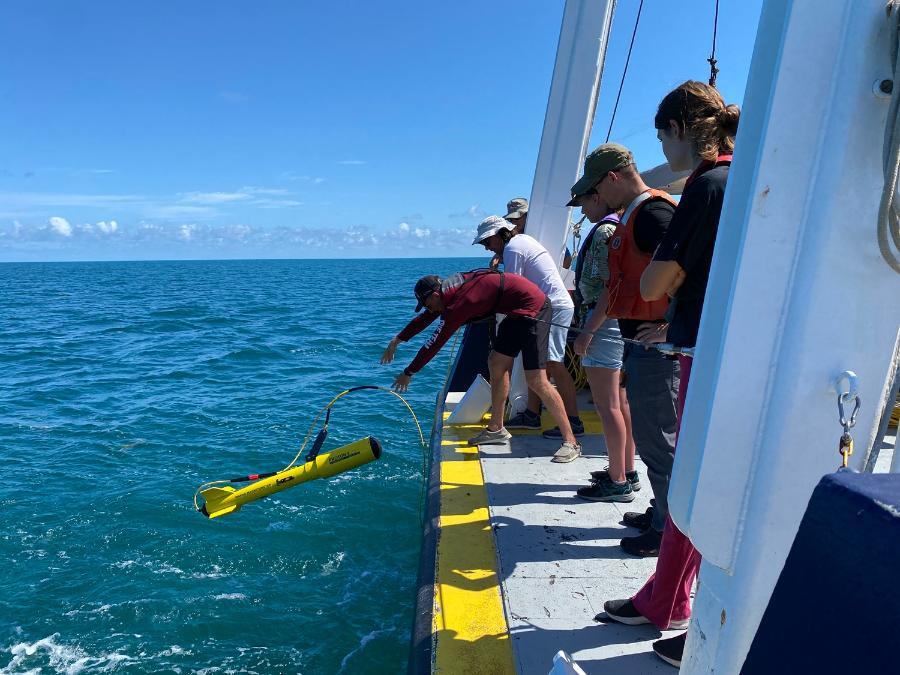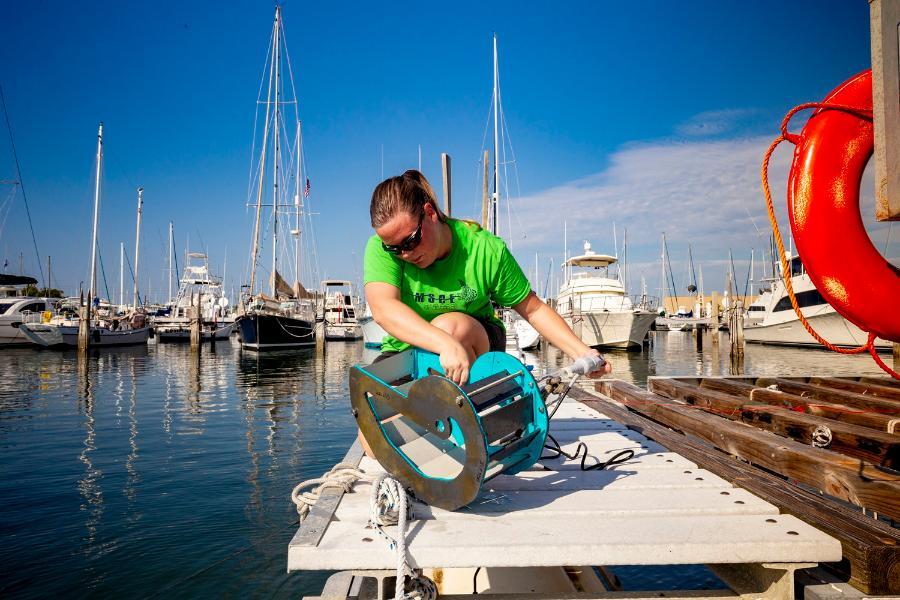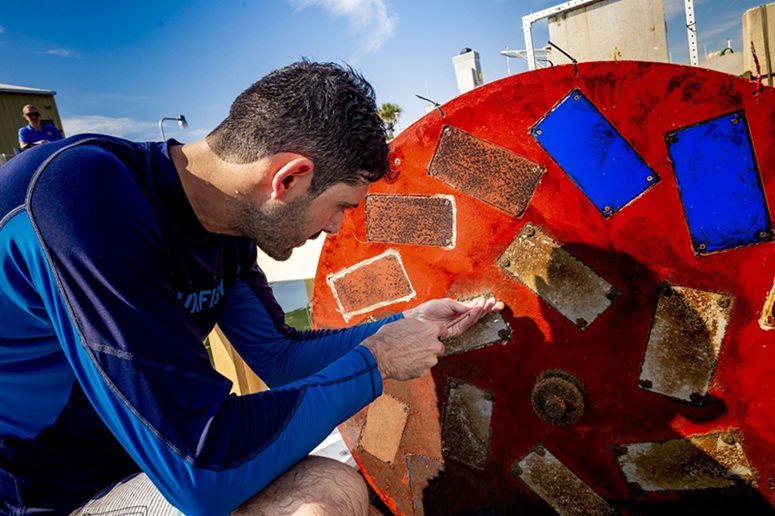Dive Into Research That Matters
Ocean engineering research at Florida Tech tackles real-world challenges through specialized labs.
At the Center for Corrosion and Biofouling Control, researchers develop advanced coatings, materials and protection systems for harsh marine environments.
The Hydromechanics and Naval Architecture Research Lab focuses on ship performance, drag reduction and the environmental impact of marine vessels.
Research at the Wind & Hurricane Impact Research Laboratory (WHIRL) explores storm impacts on coastal structures and engineering solutions for resilience.
The Indian River Lagoon Research Institute (IRLRI) brings ocean engineers into efforts to restore lagoon health through improved flow, sediment control and sustainable technologies.

 Give to Florida Tech
Give to Florida Tech 
.jpg)


